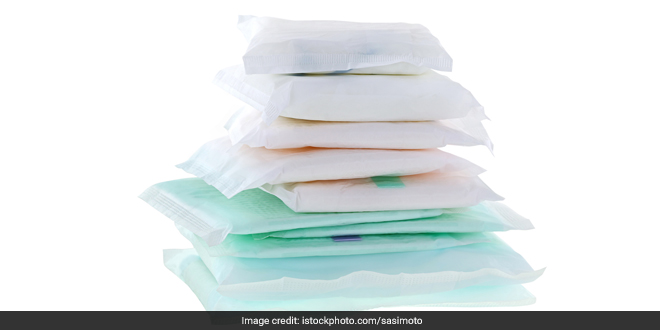New Delhi: Menstrual hygiene is one of the many issues in India that is often brushed under the carpet. Even today, the majority of the women in the country rely on unhygienic menstrual products like cloth, rags, sand, ash, husk, among others during their periods. The latest National Family Health Survey (NFHS) 2015-16 report shows that the use of sanitary napkins among women in rural India is 48.5 per cent, 77.5 per cent in urban and 57.6 per cent total. Women inmates of Hailakandi Jail in Assam are a part of the group of 51.5 per cent women that don’t have access to sanitary napkins and rely on old sarees for their menstrual hygiene requirements.
In a bid to make women inmates adopt healthier menstrual hygiene practices, Keerthi Jalli, Deputy Commissioner, district administration Hailakandi, Assam, distributed sanitary pads on Wednesday (May 1).
Women inmates rely on cloth especially saree during menstruation. They use it, wash it and reuse it and this cycle continues. But the truth is, using cloth, ash, and other unhygienic products can lead to bacterial infection and the risk of suffering from Pelvic Inflammatory Disease also becomes higher, says Ms Jalli while speaking to NDTV.
As part of the initiative, the district administration purchased 30 packets of sanitary napkins from the government’s National Health Mission (NHM) scheme. NHM offers a pack of sanitary pads at a cost of Rs. 5.
The jail does not have many women inmates so 30 packets were sufficient, says Ms Jalli.
The sanitary pad distribution was the first for the jail. Deputy Commissioner plans to look out for more sustainable options and continue with this drive to instill the habit of menstrual hygiene among women.
Keerthi Jalli, who happens to be the first female Deputy Commissioner of the district administration Hailakandi has been focusing on menstrual hygiene practices since she has got the charge. Ms Jalli has been conducting regular awareness drives in the district. For instance, last month, Ms Jalli along with her team visited hamlets in the forest in the Southern part of the district to educate girls about menstrual hygiene.
Also Read: Moon Time: An A-Z Guide To Menstrual Hygiene By US Returned Software Professional
We walked five to six kilometers to get into the interiors and convince girls to buy sanitary napkins and ditch using cloth pieces. The other day we had a discussion with a group of Muslim women. The aim is to make them use sanitary napkins, signs off Ms Jalli.
Like Ms Jalli various women and boys in India have come forward to educate and create awareness about menstrual hygiene. Across the country, various PadBanks have been initiated to provide free access to sanitary pads. With all these initiatives taking place, we hope to see a paradigm shift.
NDTV – Dettol Banega Swachh India campaign lends support to the Government of India’s Swachh Bharat Mission (SBM). Helmed by Campaign Ambassador Amitabh Bachchan, the campaign aims to spread awareness about hygiene and sanitation, the importance of building toilets and making India open defecation free (ODF) by October 2019, a target set by Prime Minister Narendra Modi, when he launched Swachh Bharat Abhiyan in 2014. Over the years, the campaign has widened its scope to cover issues like air pollution, waste management, plastic ban, manual scavenging and menstrual hygiene. The campaign has also focused extensively on marine pollution, clean Ganga Project and rejuvenation of Yamuna, two of India’s major river bodies.




























